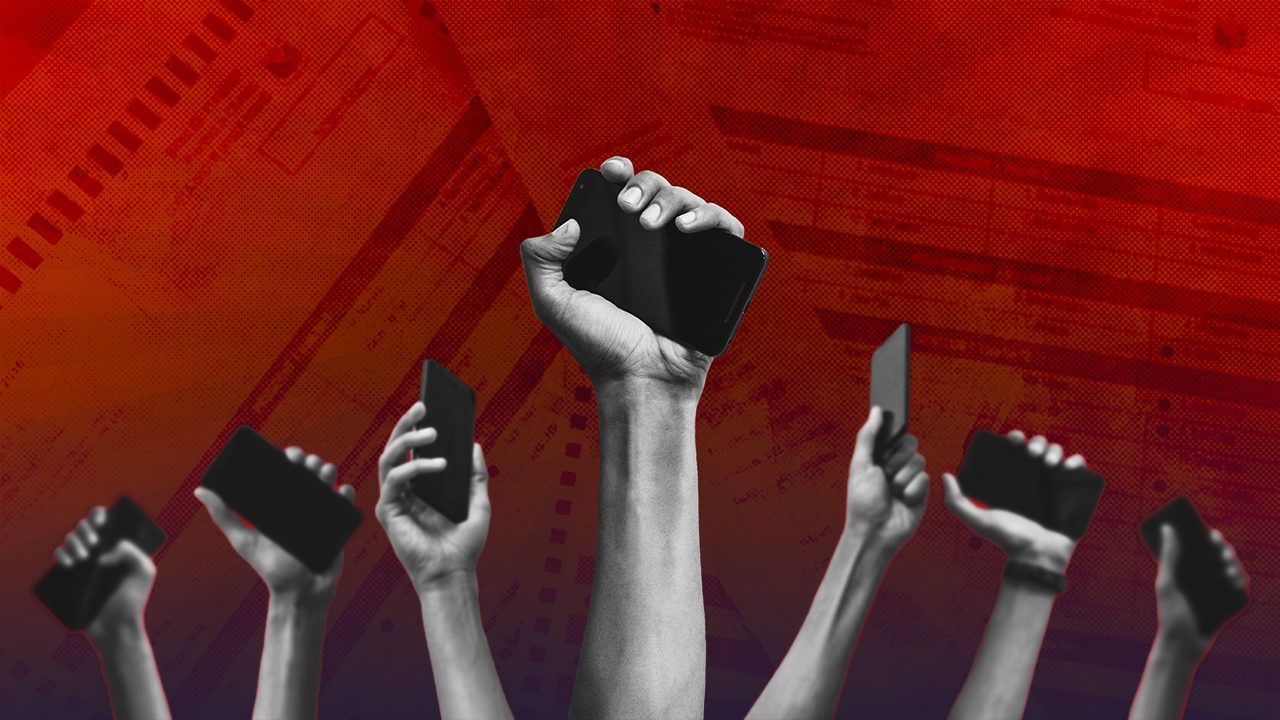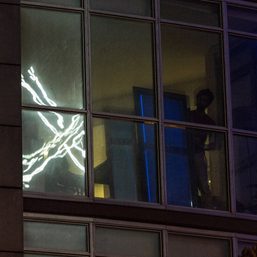SUMMARY
This is AI generated summarization, which may have errors. For context, always refer to the full article.

MANILA, Philippines – Widespread “fake news” and internet propaganda affected the 2016 and 2019 Philippine elections, according to the findings of a study conducted by a De La Salle University (DLSU) researcher.
“Fake News, Internet Propaganda, and Philippine Elections: Episode 1 – 2016 to 2019,” a study conducted by Gerardo V. Eusebio, a professional lecturer from the De La Salle University, analyzed how the rise of internet trolls, disinformation, and internet-based propaganda affected the Philippine elections, particularly the 2016 and 2019 leg.
Eusebio explored how social media was used by President Rodrigo Duterte to win the presidency in 2016, and how the widespread disinformation on Facebook during the 2019 Philippine elections became a big part of Rappler’s “Fact Check” section.
According to the study, “Much of the reason for Duterte’s heavy reliance on social media in 2016 is practical: his campaign team did not have the resources that the major political parties had, maximizing their minute 10-million-peso media campaign budget through creative means.” (READ: Duterte’s P10M social media campaign: Organic, volunteer-driven)
“A strong social media presence can help candidates boost their electoral performance, especially if said candidates have multiple supporter pages helping them spread all their messages and statements, including memes, viral content, and fake news,” it added. (READ: Non-political Facebook pages used for election disinformation – study)
Facebook’s role in the 2016 PH elections
Prior to the usage of social media by different political entities in the country, text blasts were utilized by the Filipino people in ousting a corrupt president in a historical event, dubbed as “EDSA Dos.” (READ: Looking back at EDSA II: The political paths of Estrada and Arroyo)
Meanwhile, in 2013, netizens made use of social media to echo people’s clamor against the controversial Presidential Development Assistance Fund (PDAF). The platform was also used to document people’s traumatic experience after the onslaught of Typhoon Yolanda (Haiyan).
Fast forward to 2015, Facebook’s “Free Basics,” an initiative wherein users were given free access to select websites and services, catapulted the Philippines as the social media capital of the world by amount of use, according to the study.
The aforementioned service became available in the country after it was availed by Philippine telecommunication companies, such as Smart Mobile. Through bundled prepaid and postpaid promos, users can make use of the “Free Basics” feature.
This, in effect, made Facebook the predominant platform in the Philippines. In 2020, the platform accounts for 93% of the country’s social media market share, study says.
In 2016, a year after Facebook’s “Free Basics” launch in the country, the campaign team of then-mayor, President Rodrigo Duterte, got assistance from Facebook in taking advantage of the platform to boost Duterte’s presence.
Keeping up with Duterte’s minute budget, the campaign team also equipped online volunteers and internet trolls to harass the opposition, according to the study.
The widespread cyber disinformation, which shortly followed Duterte’s win, also saw the rise of Rappler’s “Fact Check” section – a countermeasure to refute or verify the claims circulating online.
Fact-checking the 2019 PH elections
Spanning between October 2018 (filing of candidacy) to May 2019 (2019 Philippine elections), an estimated 1.45 million people have viewed “fake news,” according to the study.
Within the said period, 135 fact checks from Rappler – with 73 claims rated as false, 40 rated as hoaxes, and 19 rated as misleading claims – revealed Facebook as the biggest source of claims being fact-checked by the news site.
Many of these claims have arisen from the then-upcoming 2019 Philippine elections.
Under the “Top 10 Specific Themes by Number of Articles” in the study, “Rodrigo Duterte” recorded 1,168,359 interactions with 22 articles under its belt. This was followed by “Noynoy Aquino” with 317,277 recorded interactions and 10 related articles. “Otso Diretso,” an alliance formed in opposition to Duterte, placed in third with 191,831 interactions and 6-related articles.
The “Top 5 Overall Claims with Most Interactions Recorded,” on the other hand, displayed a mixed selection – with the fact check, “MISLEADING: P185 total cost of processing land titles in DENR” taking the top spot, followed by “FALSE: ‘No proof’ that Marcos couple stole billions from Filipinos.”
Political claims were also found to be mixed; but nonetheless, the massive disinformation online, as reflected in these fact checks, still displays the effectiveness of internet propaganda.
“A more complete data, which include followers and page views might paint a better yet different picture. But this can already be indicative of a virtual political environment that is vulnerable to malicious and deleterious propaganda,” the study concluded. – Rappler.com
Add a comment
How does this make you feel?


![[Rappler’s Best] US does propaganda? Of course.](https://www.rappler.com/tachyon/2024/06/US-does-propaganda-Of-course-june-17-2024.jpg?resize=257%2C257&crop=236px%2C0px%2C720px%2C720px)

![[ANALYSIS] Cognitive warfare: The tip of China’s gray zone spear](https://www.rappler.com/tachyon/2024/05/cognitive-warfare-china-may-18-2024.jpg?resize=257%2C257&crop=472px%2C0px%2C1080px%2C1080px)





There are no comments yet. Add your comment to start the conversation.